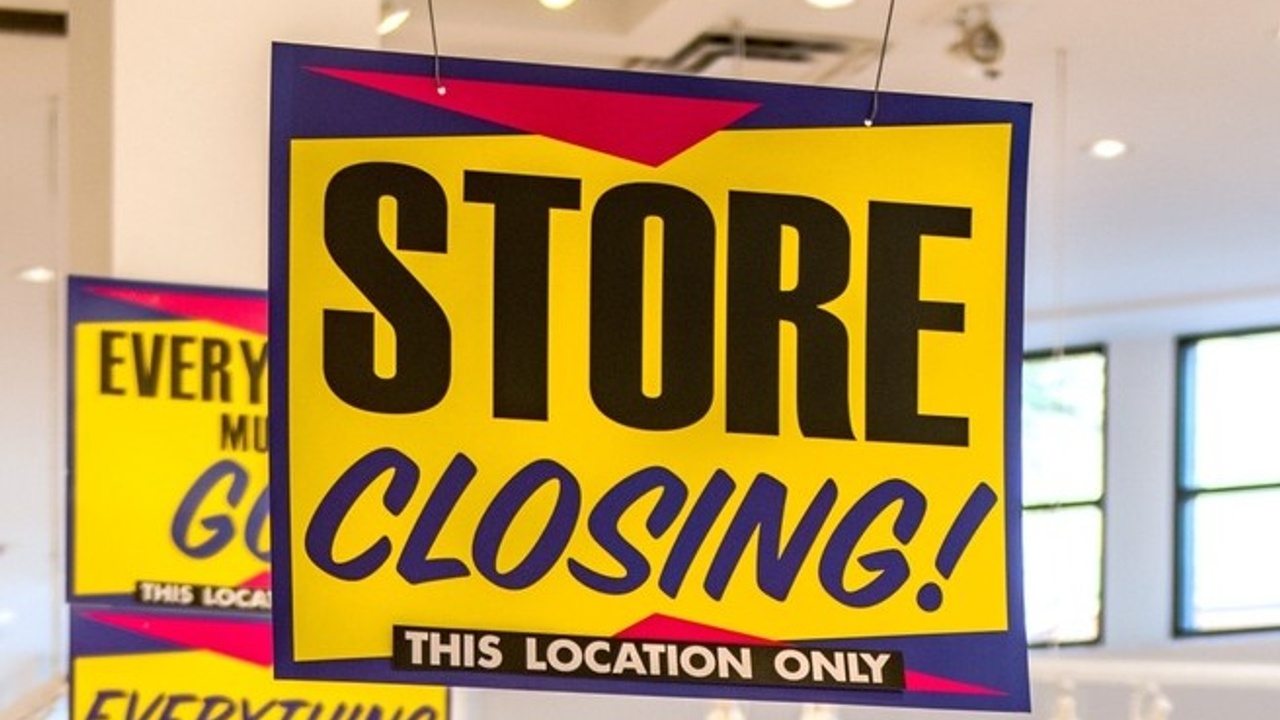PUBLISHING MARKET UPDATE; Vol. 3, Issue 8

For those of us who majored in Economics, the dreaded word “recession” always seemed straightforward. You’re either in one, or you’re not. While the economy has become rather nuanced in the first few years of the ‘20s, the downward pressures are clearly being felt. Except in some very rare situations, books are the definition of a discretionary purchase. So, a downturn—whether or not you want to call it a recession—is definitely going to rear its ugly head here in the Update.
The folks at Variety conducted a survey in early July and found that 55% of U.S. adults expected to reduce their spending on entertainment in a recession (a category that includes books). Only 10% said that none of their spending habits would change in the event of a recession, to which their credit card companies shouted “hooray.”
Amazon Down!
Regardless of what the politicians might be telling us, the fact is that Amazon saw a drop in revenues from its online business of 4% in the second quarter. If that’s no...
Publishing Industry Market Update; Vol. 3, Issue 7

Audiobooks Stay White-Hot
The Audio Publishers Association reported double-digit revenue growth for an astonishing 10th consecutive year. 2021 audiobook sales saw an increase of 25% over 2020 – a year that was itself up 12% over the prior year. The genre leading the way: romance, with a 75% increase in revenues for 2021. No editorialization on such a figure will be provided by Market Update at this time.
The number of audio titles produced in 2021 was also up—6% over the title count in 2020—for a total of 74,000 titles released in audio.
More stats (because that’s what we do here):
- 41% of audiobook listeners subscribe to at least one membership service (up from 38% in 2020).
- 61% of parents say their children (17 and younger) listen to audiobooks, up from 49% a year ago.
Not sure how to feel about that last figure, as it could indicate a decrease in literacy. Perhaps it’s time to employ a centuries-old parenting mantra: “Do as I say, and not as I do.”
Bookstores ...
PUBLISHING MARKET UPDATE; Vol. 3, Issue 6

We are definitely seeing a slowing in several sectors of the publishing industry. The weekly numbers for May 2022 are reported later in the Update.
Wall Street Watch
The numbers for the first quarter of 2022 are coming in from Wall Street. The results are mixed.
We have no doubt seen a slowdown from the red-hot pandemic-fueled periods of 2020 and 2021. But, while sales numbers for 2022 are fairly decent overall, some in the industry are clearly feeling the pinch on the profit line thanks to a steady dose of higher costs, supply chain delays, and inflation.
For instance, HarperCollins reported a 5% increase in sales in the first 3 months of this year but settled with a 16% decrease in earnings compared to the same period last year. Most of the revenue increase can be attributed to the Houghton Mifflin Harcourt acquisition, but that wasn’t nearly enough to save the bottom line.
Hachette parent Lagardere was similarly helped by acquiring Workman last fall, ending 8.8% above las...
PUBLISHING MARKET UPDATE, VOL. 3, ISSUE 5

Wanna make it big on TikTok?! Yes, if you’re an author you do—particularly a fiction author.
What is #BookTok?!
#BookTok is a linkable “hashtag” inside of the TikTok app, and somehow it is driving book sales in a big way. TikTok is probably not the social media platform that you would assume would be frequented by voracious readers. But apparently, they are on there. Reader-fans are going on TikTok, sharing about their new favorite book(s), and tagging them with “#BookTok.” And the click-throughs go wild.
The smart people at NPD BookScan did some digging into this latest book marketing phenomenon. They tracked a group of 90 fiction authors who were featured on #BookTok. Comparing those authors’ sales in 2020 (before #BookTok started) to 2021, they found that those #BookTok authors saw sales growth of 73% for the titles being tracked. Those authors alone saw sales go from 9 million copies to 20 million copies in just one year!
Backlist Boom
For reasons not entirely determinab...
Publishing Market Update; Vol. 3, Issue 4

Barnes & Noble Reports Solid Growth
B&N CEO James Daunt reported in an interview with Publishers Weekly that despite a slow December due to the omicron COVID variant, B&N stores were trending 5%-6% above pre-pandemic 2019 numbers. Daunt cited two factors that drove increases in overall book sales: backlist sales and BookTok. BookTok seems to have ignited the interest of young people in books, with teenagers and young adults responding to the recent hashtag-related social media marketing trend.
Daunt also credited the hasty store remodeling that occurred during the pandemic as a source of increased foot traffic and corresponding product sales. While that effort was done mostly with existing furniture and fixtures, B&N is now taking about 30-40 stores through a more comprehensive remodel, with the plan to update all locations as soon as feasible.
Amazon Shutters
Well, its bookstores, anyway. Amazon has announced the closing of all Amazon Books locations, as well as Amazon 4-Sta...
Publishing Market Update; Vol. 3, Issue 3

David beat Goliath!
At least in the 4th quarter of 2021. While Amazon’s online sales fell 1% in Q4 of 2021, brick-and-mortar bookstores saw an increase of over 43%. Bookstores finished the year up 28% over 2020—a year when all of the retail sector was up only 19.3%. Though that jump still left bookstores short of pre-pandemic 2019 by 1%.
2021 Corporate Reports
The 2021 year-end results are rolling in from the Big 5 (or 4, or 3, or whatever it is this week).
Simon & Schuster continues to increase its resale value – even though they are technically in escrow to Penguin Random House (pending a legal contest from the DoJ). S&S ended 2021 up 10% in sales and a whopping 52% increase in operating income.
Hachette's parent company, Lagardere, reported a 9.4% revenue increase, with earnings up a phenomenal 42.7%. Hachette’s US division was up 3.7% for the year. The company is, however, forecasting a flat 2022, as it anticipates that people will be reading less as the pandemic winds ...
Do You Want to Grab a Coffee?

Have you ever wanted to have coffee with a literary agent? If you could just get some time around the table with one, you could get all your questions answered, right?
As literary agents, we get this request a lot. Our hope is to provide you with answers so that you avoid those pitfalls and blind spots that so many amateur writers make. It’s amazing what a short conversation can do.
And as much as we love coffee and talking about books and publishing, there isn’t enough time in the day to handle all these requests.
That’s why we want you to join us for our FREE author training: Thursday, Feb 24, at 1 pm PT/3 pm CT: "The Secret Path to Getting Published."
This training is for:
- Authors who dream of being traditionally published
- Authors who want a substantial publishing deal
- Authors who are seeking representation from a literary agent
- Authors who keep getting rejected and don’t know what they are doing wrong
- Authors who have written a book proposal that has been rejected
Publishing Industry Market Update; Vol. 3, Issue 2

Industry analysts are expecting a leaner 2022 for book sales, as the publishing industry is expected to cool…but only because 2020 and 2021 were so good! The basis for that prognostication is mostly because it’s hard to say with a straight face that 2022 could possibly follow those two older siblings with similar results. Also, with the supply chain still stressed and inflation driving up the cost of manufacturing—and hence the price being charged to the reader/consumer, a dip seems inevitable.
Another leading indicator—December 2021 holiday sales—slipped 1.8% lower than 2020’s numbers. That dip continued into January 2022, with the first full week of the new year coming in at 13.9% below the prior year’s results. The subsequent two weeks were down 3% and 2.6%, respectively.
2021: Another Big Year in [the] Books (pun intended)
For the first time in the 18-year history of NPD/BookScan, the publishing industry saw large sales gains in back-to-back years. Print books trended up 8.9%...
What Question Are You Asking Yourself?

If you’ve ever spent a Saturday watching or participating in a track and field meet, you’ve probably witnessed someone falling out of the blocks. The sprinter is crouched and ready, head down and waiting for the starting gun . . . And then, the moment arrives and they stumble and fall.
It’s a tough thing to witness, even tougher to have experienced.
We’ve all been there, right? We're ready to go, the race is ahead of us . . . and we fall out of the gate.
This time of year, “New Year, New You” gets all the hype. Encouragement is abundant for 2022. And who can dismiss a fresh start, especially after the last couple of years? Like the sprinter, maybe you were ready to go, the race ahead of you . . . and then you crashed.
If that’s you, today is about helping you up after you've broken the promises you made to yourself about your writing goals, your publishing plans, or any other resolutions you’ve made around your art.
So, what do you do if things haven’t gone the way you would h...
Publishing Industry Market Update; Vol. 3, Issue 1

Before you drag that dried-out, dead fire hazard to the curb, let’s drink some lukewarm eggnog to celebrate a successful Christmas season of bookselling with our December sales update.
Weekly Book Sales Slow…Then Sprint into the New Year
After months of torrid sales reports for print books, we did see some intermittent slowing from week-to-week as we moved into the fall – as prognosticated by the Market Update, because the comparable prior year numbers from fall of 2020 had cast off any remnant of the early-year COVID slow down and were turbo-charged by the quadrennial fuel of a presidential election cycle. So, we continued to see some fits and starts in the November sales figures.
Thanksgiving week saw print sales up 9.7% over the prior year’s Black Friday week, with Barnes & Noble reporting double-digit sales increases for that all-important shopping weekend— strained supply chain and all. The following week stalled, reporting an essentially flat drop of 0.2% from a year prior. By...

